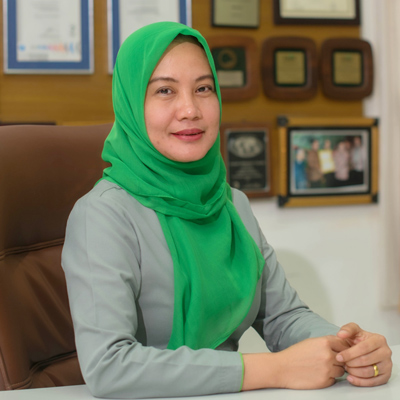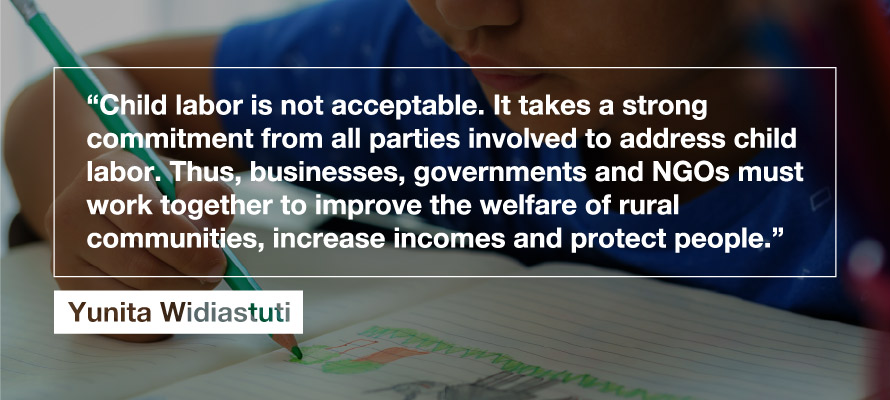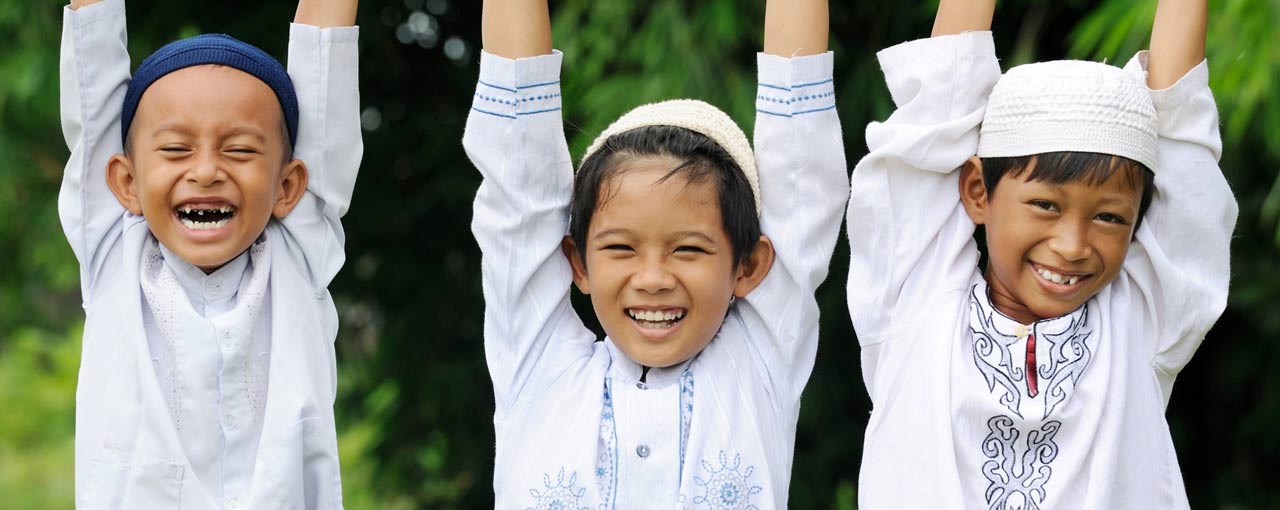‘Children are the key to our future’: Protecting children and investing in their future in Cargill's Tropical Oils Business
 Yunita Widiastuti, Tropical Oils Sustainability Lead
According to the International Labour Organization, protecting children from child labor means ensuring no child works in a way that “deprives them of their childhood, their potential and their dignity, and that is harmful to their physical and/or mental development.” Cargill does not tolerate the practice of forced child labor or the use of child labor in our operations or supply chains.
Yunita Widiastuti, Tropical Oils Sustainability Lead
According to the International Labour Organization, protecting children from child labor means ensuring no child works in a way that “deprives them of their childhood, their potential and their dignity, and that is harmful to their physical and/or mental development.” Cargill does not tolerate the practice of forced child labor or the use of child labor in our operations or supply chains.
In an interview with Yunita Widiastuti, Indonesia Tropical Oils Sustainability Lead, she explains what action Cargill takes in its own palm operations in Indonesia to keep children safe.
What does Cargill do to protect children in Indonesia?
As a company with palm oil plantations in South Sumatra and West Kalimantan, Indonesia, and a global palm supply chain, we understand the dangers child labor entails, and we do not tolerate child labor.
Children are the future. Children whose rights and needs are fulfilled and who have access to education have a greater chance to build a better future for themselves.
Cargill’s work to protect children in Indonesia goes beyond keeping children safe. To us, protecting children’s rights is a lifelong commitment, from helping them have a healthy birth to enabling them to thrive into adulthood.

What are some of the measures you take to prevent and eradicate child labor?
Cargill partnered with the United Nations Children’s Fund (UNICEF) and the Roundtable on Sustainable Palm Oil (RSPO) to develop a holistic approach to protecting children. Implemented for our 18,000 employees in Cargill’s Indonesia palm operations, the Children’s Rights and Business Principles (CRBP) pilot project is creating better conditions for children — as well as for women and their families.
It begins with addressing the root causes of harm. Much of the world’s palm oil is grown in remote, low-income areas of Asia and Latin America. Here, communities face many threats — including child labor. UNICEF research showed that limited maternity protection, low breastfeeding rates, poor maternal health and nutrition, lack of childcare and difficulty accessing education were all hurting children’s health and development.
The protection pilot addresses children’s rights in all life stages — from pregnancy to education.
Cargill is committed to upholding the rights of all people in our workplace and in the communities where we do business. We are committed to respecting human rights in the workplace, in our supply chain and in the communities where we do business. We’re taking action to promote an equitable, safe and fair workplace and to operating responsibly across the agricultural, food, industrial and financial markets we serve.
The CRBP pilot helps us understand challenges so we can continuously improve to protect our employees and their children better. We’re gratified it has been recognized as a best practice by our NGO partners.
What does Cargill do to eradicate child labor from the palm supply chain beyond its own operations?
While important, programs on our owned plantations cannot be the entirety of our protections. As well as growing our own palm oil, Cargill buys from suppliers in Indonesia, Malaysia and across Latin America — where child labor continues to be a potential problem.
We require these suppliers to adhere to our Policy on Sustainable Palm Oil and Supplier Code of Conduct. The code is grounded in our guiding principles, which include treating people with dignity and respect, conducting business with integrity and being a responsible global citizen.
The moment we become aware of exploitative practices in our supply chain, we initiate our grievance process, which is built on RSPO standards. We also have guidance for our suppliers, developed in partnership with Proforest and the Fair Labor Association.
Identifying and addressing child labor remains a challenge. But we are committed to doing more. All of us in the palm supply chain — industry, government, NGOs — must work together to improve the welfare of rural communities, increase incomes and ensure people are protected.

